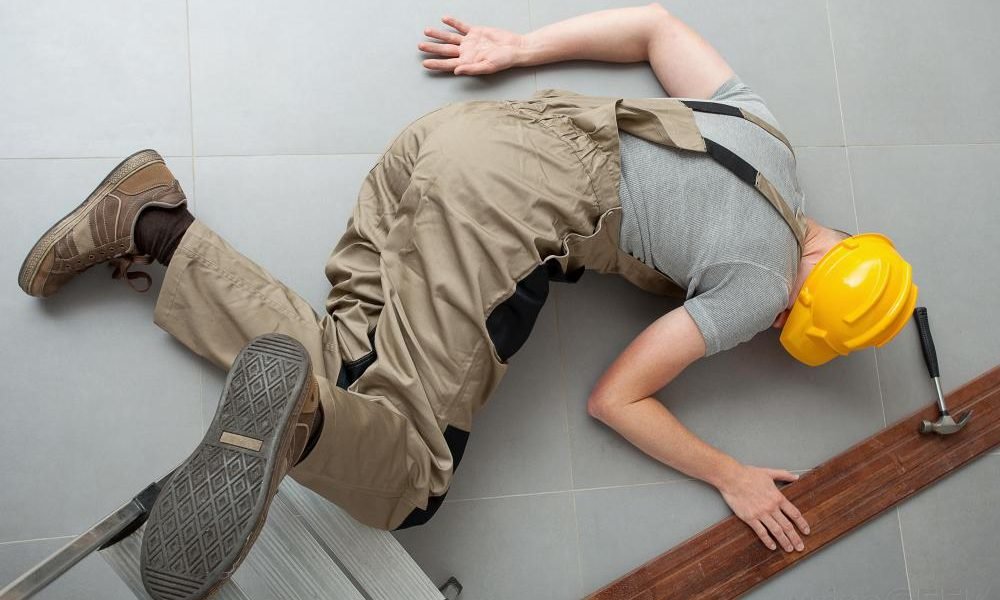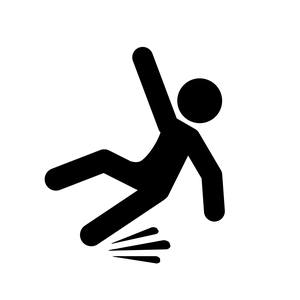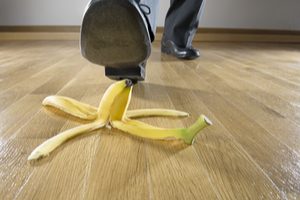
Proving Fault in Slip and Fall Accidents

Slip and fall accidents can cause serious injuries, and thousands of people get injured every year when they slip on a wet floor, trip and fall on a poorly done floor or a defective staircase. Sometimes, the fault lies with the injured, but sometimes, it is the property owner that is responsible. So, how do you differentiate?
Let’s imagine a scenario during which you fell and injured yourself. Now, you want to file a law suit, but you are not quite sure that it is going to be successful.
Here is what you need to consider.

Arcady / Shutterstock
1.If the owner was more careful, would the accident have been prevented?
The only way for the property owner to be at fault is that they were too careless and thus inadvertently caused the accident that resulted in you being injured. So, if the floor was wet, and you slipped after seeing the “Wet Floor” sign, your law suit might not just go that well. You may still have a case if you can prove that the owner didn’t remedy the danger that was created in his locale in a timely manner. But, if you have slipped after seeing the sign that warned you to avoid the wet floor you slipped on, it is most probably your fault. Also, if you have slipped on (or tripped over) something that is normally found in the location you are visiting (for an example, if you have tripped over the garden hose while walking through the garden) the property owner is still not responsible for your injury.
The fall that you experienced must not come from your own lack of attention as you do have a responsibility to make an effort to avoid dangerous conditions.
2.Did the property owner maintain reasonably safe conditions?
However, it can also be their fault. The property owner must take steps to remove dangerous conditions that may cause a slip and fall injury. While there are no specific rules, courts and companies have guidelines that they use when determining fault in these cases.
The reasonability that the owner must apply is commonly balanced by the care that you, as the person who slipped and fell, should have used to avoid the injury.
3.Liability
So, what do you need to prove liability? Well, if you have been injured due to a dangerous condition on someone else’s property you will need to show one of the three possible situations that can make them liable for your accident.
– The property owner (or an employee) did not know about the dangerous condition that caused your injury but they should have known about it. The claim behind this one is that a reasonable person in their position would know about the condition and remedy it.
– The property owner (or an employee) actually knew about the dangerous condition but chose not to fix it in a reasonable timeframe (or, at all).
– The property owner (or an employee) is the one who caused the dangerous condition.
Most law suits that follow slip and fall accidents revolve around the first situation presented. The other two situations are quite rare given how careful most property owners are in regards to dangerous situations.
4.Arguing about reasonableness

Levent Konuk / Shutterstock
One of the things that the court needs to evaluate in these cases is the reasonableness of the owner’s actions (or lack thereof). The reasonable person is a creation of legal fiction. It represents a typical person, no more prudent than an average person and it represents the standard everybody is held up to when it comes to negligence charges. In order to determine reasonableness, you should use these questions as general guidelines.
– How long before your accident had the dangerous condition been present? For an example, if a leak that caused a slippery fall appeared earlier that day and the owner is just waiting for the rain to stop to fix it, it is definitely not the same as letting the leak be there for months.
– How often does the property owner clean the property? Can he prove it?
– If you tripped over something that was left on the floor, was there reason in that object being there.
– If the object you tripped over was left there for a legitimate reason, was the reason still valid at the time of your injury?
5.Your own fault
In most cases, even when it is the fault of the property owner, some of the faults still remain with you. If you were talking on your phone and, thus, not paying attention, or are simply a very clumsy person, your award for damages will be lessened in proportion to your own fault.
More in Legal Advice
-
New York to Mail Out One-Time Inflation Rebates. Here’s the Eligibility List
New York is preparing to send out its first-ever inflation refund checks, providing financial relief to millions of residents as prices...
October 3, 2025 -
Here’s What Artists Should Know About Copyright & Its Implications
Copyright protects your art from the moment you create it. The second your drawing, painting, sculpture, or photo is fixed in...
September 27, 2025 -
Everything to Know About Vogue America’s New Editor, Chloe Malle
Chloe Malle just stepped into one of the most powerful roles in fashion media: Head of Editorial Content at Vogue America....
September 21, 2025 -
Did Barron Trump Apply to Harvard? Clearing Up the Rumors
Speculation often swirls around public figures, and in recent months Barron Trump’s college choices became part of the conversation. Questions surfaced...
September 20, 2025 -
Can You Be Naked in Texas?
The Texas public nudity law isn’t as simple as “no clothes, you are in trouble.” It all comes down to intent,...
September 13, 2025 -
Why AI Is Now a Necessity, Not a Choice, for Law Firms
Artificial intelligence is no longer a futuristic concept for the legal industry. It is steadily changing how law firms operate, not...
September 13, 2025 -
Waikiki Lifeguard Cleared in Confrontation With Notorious Criminal
On a hot day at Kuhio Beach, veteran lifeguard Christopher Kekaulike Kam stepped in when things got out of control. A...
August 13, 2025 -
Gawking at the Coldplay ‘Kiss Cam’ Affair Is Voyeurism at Its Worst!
Coldplay concerts are meant to be joyful. But during a recent show, a playful kiss cam bit turned into a public...
August 6, 2025 -
Essential Safety and Success Resources for Trans Journalists
Trans journalists go through tough spaces every day. In a field that often tests your limits, knowing where to turn for...
July 30, 2025














